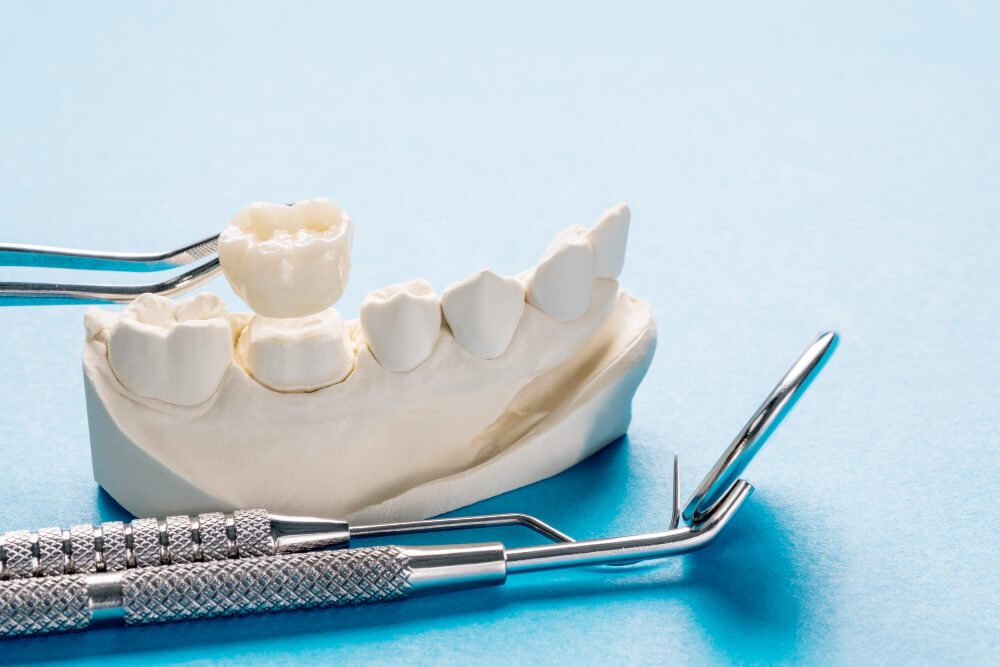How Long Do Dental Crowns Last and What Affects Their Lifespan?

When you invest in a dental crown, you naturally want it to last for as long as possible. Whether you’ve had one placed to restore a damaged tooth, protect a weak one, or improve your smile’s appearance, it’s important to understand how long a dental crown can realistically serve you—and what you can do to make it last longer.
If you live in Wodonga and are considering getting a dental crown, this guide will help you understand what affects its lifespan and how to keep it in great condition for many years to come.
How Long Does a Dental Crown Typically Last?
Dental crowns actually last between 10 and 15 years on average, yet most individuals have had their crowns last a lifetime of 20 or even more with proper care. The actual lifespan depends on several factors—some you can control, and others you can’t.
The material used, the skill of your dentist, your daily habits, and even your bite alignment all play a part. Crowns are designed to be strong and durable, but just like your natural teeth, they need a little care and attention to stay in top shape.
What Affects the Lifespan of Your Dental Crown?
1. Type of Crown Material
Various materials provide various degrees of durability and appearance.
- Porcelain crowns look the most natural but can be more prone to chipping if you grind your teeth or chew hard foods.
- Porcelain-fused-to-metal (PFM) crowns combine strength and aesthetics but may show a thin dark line at the gum line over time.
- Metal crowns (gold or alloy crowns, etc.) are very hardy and durable and not as common on the front teeth due to the metallic appearance.
- Zirconia crowns are strong, modern options that offer a balance of beauty and toughness.
When you visit your Wodonga dentist for a dental crown, they’ll help you choose the right material based on your tooth’s location, your bite, and your cosmetic preferences.
2. Your Oral Hygiene Routine
Good oral hygiene is key to protecting not only your natural teeth but also your dental crown. While the crown itself can’t decay, the tooth underneath still can—especially around the gum line, where bacteria tend to build up.
Removing plaque and decay can be prevented with brushing teeth two times a day using a fluoride toothpaste, flossing every day, and rinsing with mouthwash. Regular dental check-ups also allow your dentist to detect any early signs of issues before they become bigger problems.
3. Daily Habits and Diet
he way you live has a big influence on the duration of your dental crown. If you frequently chew ice, bite your nails, or use your teeth as tools to open packages, you risk damaging your crown.
Likewise, the tooth that sustains the crown is likely to face problems such as decay or gum issues when the diet is rich in sugar or acidic foodstuffs. By avoiding these habits and being mindful of what you eat, you’ll help your dental crown last much longer.
4. Teeth Grinding or Clenching (Bruxism)
If you grind or clench your teeth, you put constant pressure on your crown, which can cause wear, cracks, or even loosening. A lot of individuals tend to grind their teeth without knowing.
In case of any fear that you might be grinding, your dentist may prescribe you a custom night guard (occlusal splints) to protect your teeth and crown. This easy remedy can save the life of your crown and prevent other dental complications.
5. The Dentist’s Technique and Precision
The way your crown is placed plays a major role in its longevity. A well-fitted dental crown aligns properly with your bite, seals the tooth effectively, and reduces the risk of bacteria seeping underneath.
When you get your dental crown in Wodonga, choosing a dentist who pays close attention to fit, alignment, and quality materials ensures a comfortable, long-lasting restoration that looks and feels natural.
6. Gum Health
Healthy gums are the foundation of a stable crown. In case you develop gum disease, your gums can recede, leaving the tooth under the crown open and exposed to vulnerability.
Proper dental care and good home care of your gums will help to ensure that your crown is safe and healthy.
Signs Your Dental Crown May Need Replacement
Even with the best care, no crown lasts forever. You may need a replacement if you notice:
- Pain or sensitivity around the crowned tooth
- Chips, cracks, or visible wear on the crown
- A loose feeling or changes in how your bite feels
- Dark lines near the gum line (for porcelain-fused-to-metal crowns)
If you experience any of these issues, it’s best to schedule an appointment with your Wodonga dentist. Early assessment can often prevent further damage or discomfort.
How to Make Your Dental Crown Last Longer

Here are a few practical tips to help you get the most from your dental crown:
- Keep the oral cavity well-cleaned by brushing and flossing on a daily basis.
- Avoid chewing on hard objects or foods.
- Visit your Wodonga dentist every six months for professional dental cleanings and check-ups.
- Address teeth grinding early with a protective night guard.
- Eat a balanced diet to benefit overall oral health.
Your dental crown can endure several years with proper care, which offers power and attractiveness to your smile.
Dental Crowns in Wodonga
Your dental crown is an investment in your oral health and confidence. You can make your restored tooth serve you well for several years by learning what influences its lifespan and doing something to keep it healthy.
If you’re in Wodonga and think your crown might need attention—or if you’re considering getting one—book a consultation today. Your Wodonga dentist can assess your needs, recommend the best options, and help you keep your smile looking and feeling its best.
Call your Wodonga dentist on (02) 6024 1516 or visit us at 340 Beechworth Road in Wodonga.
